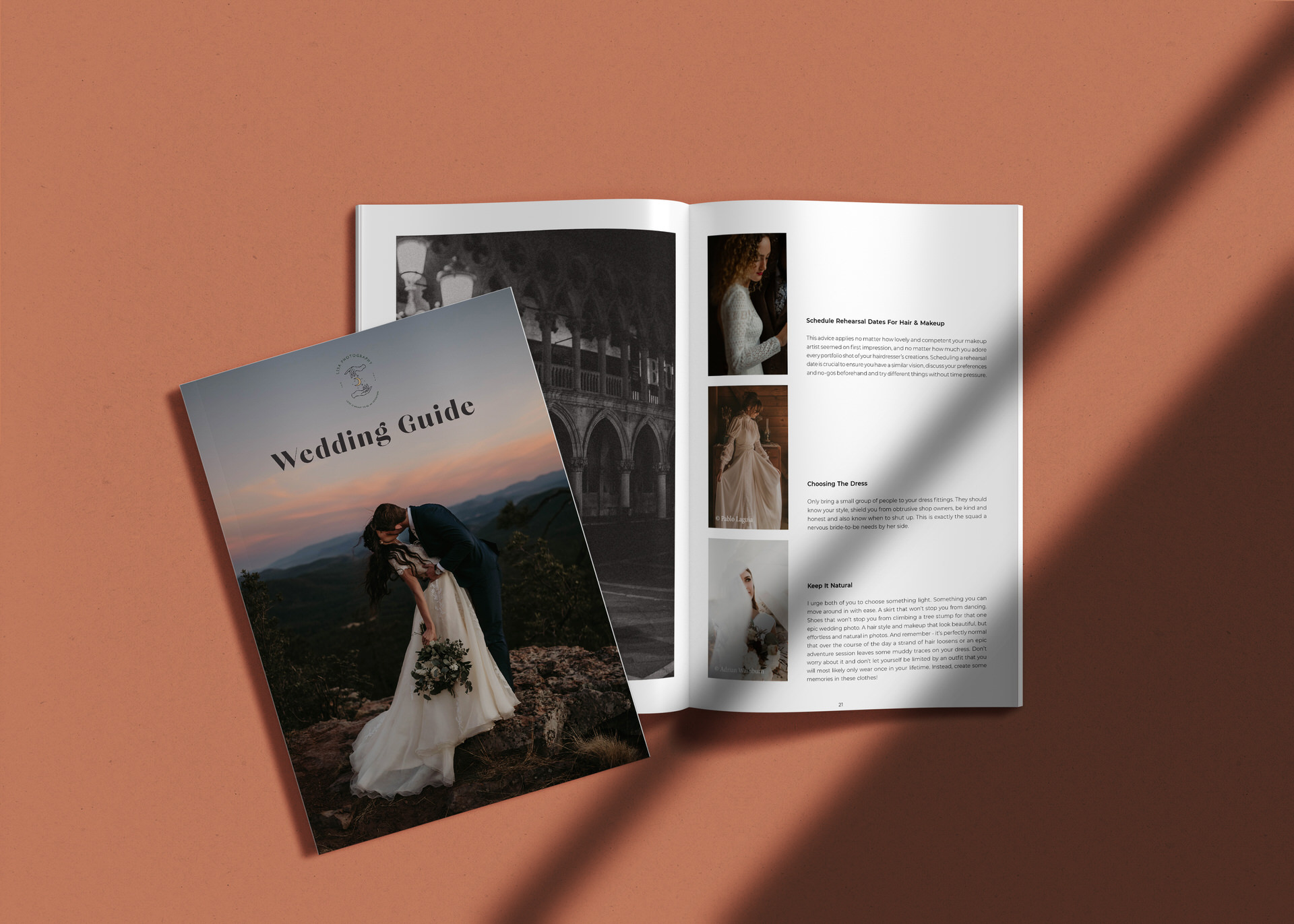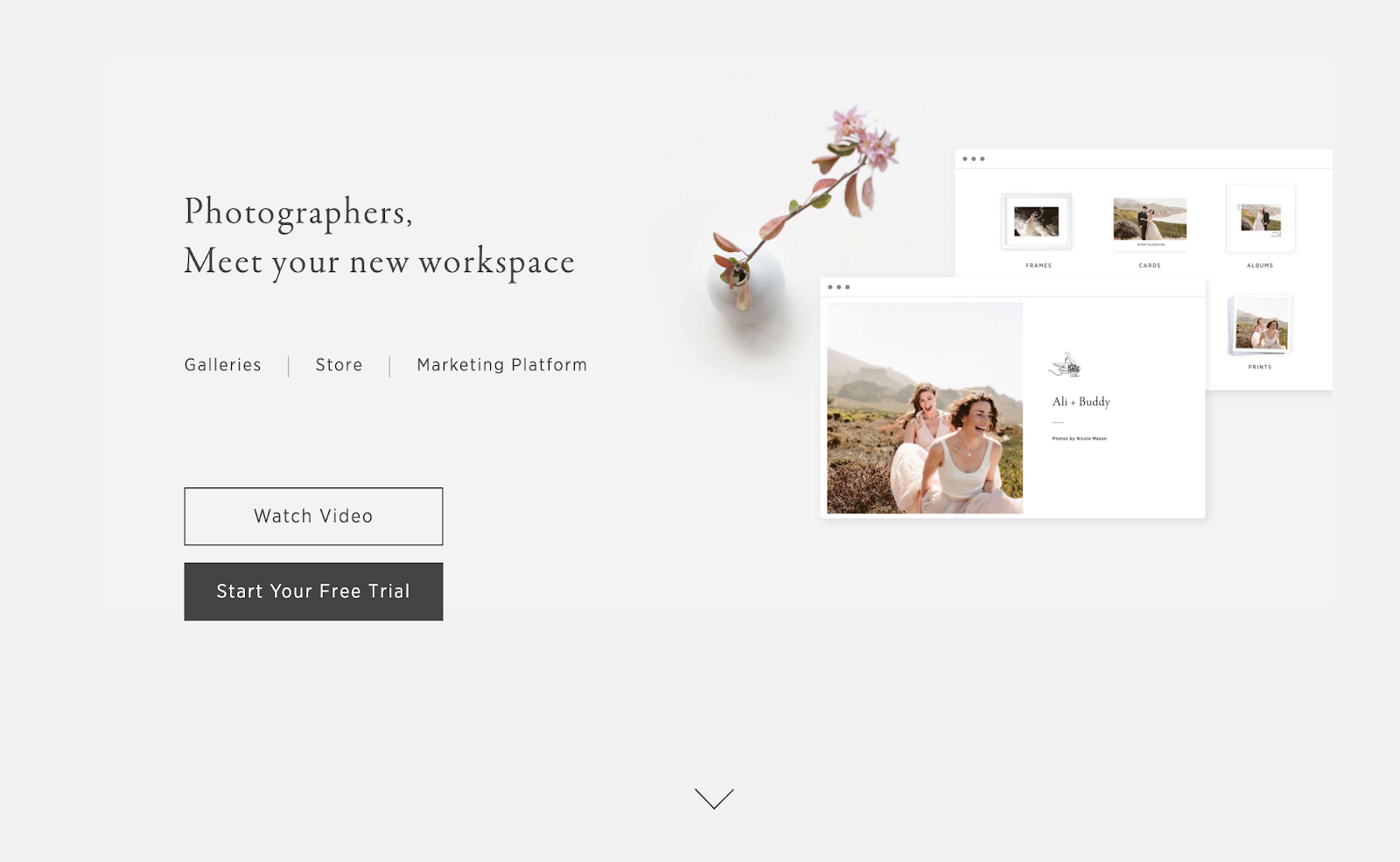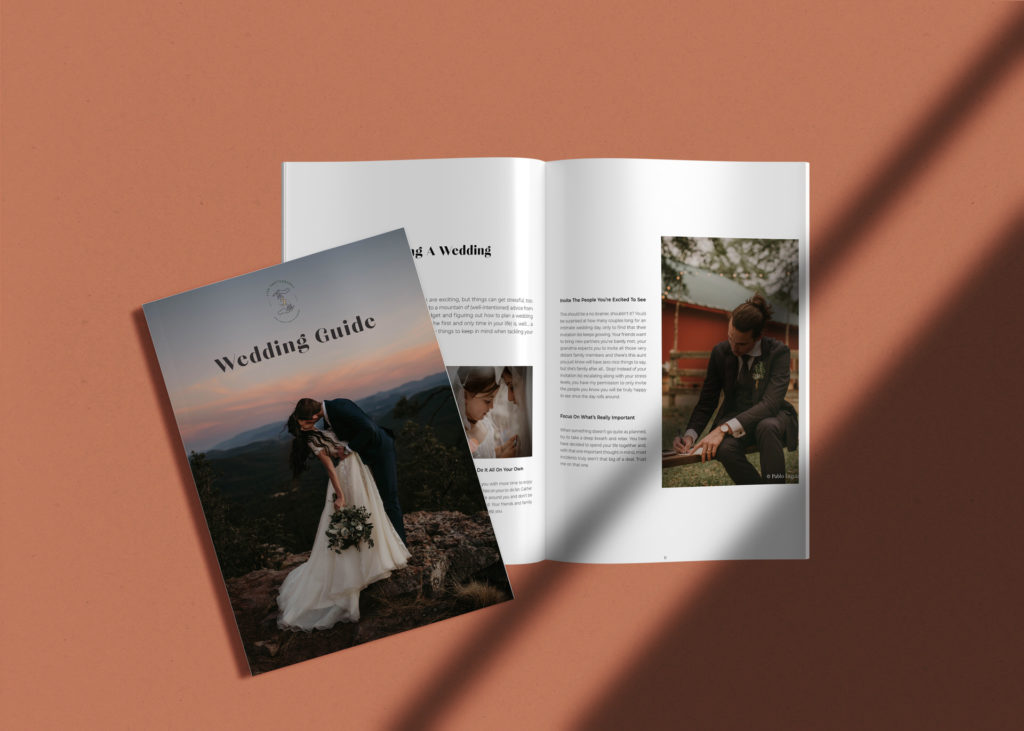Online criticism — it’s something that anyone with an online presence, however big or small, will be familiar with.
In fact, us in the wedding industry can be especially susceptible to a few pointed comments, what with much of our business coming through social media.
But how should we handle online criticism?
Well, the truth is, it can be quite tricky… and we say that from our own, not-always-so-lovely online experiences.
No matter how successful you are, online hate can really take its toll.
No one likes to be called out for doing something they love, and criticism — even if it’s on the money — is never nice to read.
But whilst it’s completely natural to want to bury your head in the sand or fight back, it’s important to recognize that genuine, good-intention criticism shouldn’t be ignored, and can actually be a really positive and powerful force for good.
Today, then, we want to share with you how we — from first-hand experience — were able to deal with online criticism within the photography community.
So, let’s get started.
First things first, don’t take things too personally
First things first, don’t take things too personally
Although it’s easier said than done, it’s important to remember that the majority of online criticism isn’t personal.
Internet critics don’t know you, your story, or your experience — and their opinions are based on their perception of your business, not you (which you are not).
And although any form of criticism is tricky to handle, recognizing the distance between yourself and your critics is the best way to not take their comments to heart.
This doesn’t mean you shouldn’t take on board some of the more constructive criticism you receive (you should, and we’ll tell you why a little later) — but it does mean that you should take a few steps back, and remind yourself that online criticism is rarely personal.
Not only will this help to protect yourself against the stress and anxiety of negative feedback, but it could also lead you to new opportunities for growth and development, especially if it comes from a relevant and reliable source.
A great way of removing yourself from your business is to separate the two online.
A business Instagram account, for example, will set a clear boundary between your personal life and your work, which should certainly help to take the sting out of any negative comments you receive.
All in all, it’s important to remember that business is never personal — and you should use that fact as your armor when faced with criticism you’d rather not read. Your mental health will be all the better for it, and so will your business.
Next, tackle criticism head on, read it, and try to learn from it
Once you’ve got the right perspective on criticism… contrary to popular belief, we think it’s a great idea to tackle it head on, read it, and use it to your advantage.
The truth is, whilst criticism is never nice to hear, sometimes it’s essential.
And although many public figures will swear by ‘avoiding the comment sections’, most of us photographers are in a position that’s not so privileged — one where any sense of recognition, good or bad, is a sign of growth and an expanding audience.
That’s why, once you’ve separated the trolls from the critics, it’s worth trying to find value in the comments you might usually be tempted to delete and brush under the carpet.
And sure, people could be a little kinder with their words, but online criticism, whether you agree with it or not, offers an invaluable opportunity to learn from your audience, reflect on their opinions, and evaluate areas where you might be able to up your game.
We know it’s a little bit of a cliché — but none of us are perfect, after all, and if there’s something that’s being repeatedly flagged up by your audience, it’s a sure sign that it might be time to take some action.
Of course, this doesn’t mean you should listen to aimless trolls with nothing better to do than torment… but if you receive some genuinely constructive criticism, there’s a lot of strength in recognizing what’s being said, taking it on board, and trying to grow from it.

Photographer: Courtney Nowlin
But how do you separate the trolls from the truth-tellers?
Well, first things first, you should try and identify exactly who it is that’s criticizing you — is it an anonymous profile with no posts, or an active photography account in the wedding niche?
The latter is likely to have some really valuable insights, whilst an empty account might not even be a real person (so definitely not worth listening to!).
Aside from checking out the profiles of your critics, it’s easy to spot a troll from the kind of feedback they’re leaving on your content, too.
Rude comments, personal insults, inflammatory emojis… these are all signs that someone is out to irritate, not inform. Genuine critics, on the other hand, will usually take the time to highlight what their opinion is, why they hold it, and what they’d do differently.
Again, comments like these can be filled with value.
If someone has gone out of their way to tell you why something isn’t ‘up to standard’, there’s probably a reason for that — so, take it on board, and consider whether they’ve got a point.
Chances are, they just might… and there’s no shame in that!
Us creatives should always be open to learning from one another and growing together; it’s one of the greatest, and most valuable, opportunities for development you’ll find in this super competitive industry.
Always consider your response to criticism, and don’t be ‘trigger happy’
How you handle your critics is vital to your brand’s reputation within the wedding photography business.
Do you want to be the brand that’s known to ‘clap back’ at the ‘haters’?
Or one that’s celebrated for taking criticism seriously, and always looking for opportunities to do better?
Hopefully, the latter sounds a little more appealing — and that’ll certainly be the case among potential clients on the hunt for an understanding, compassionate, and emotionally-in-tune wedding photographer to capture their special day.
Whenever you read a comment that stings, then, scroll past it, reflect on it, and consider what kind of response (if any) is appropriate.
You should never entertain a sharp-tongued troll. But if a user has left a polite and sensible comment that outlines an issue with something you’ve posted, it’s always worth leaving a public response that recognizes their concerns.
This will not only demonstrate your professionalism to others in the industry, but will also show potential clients how great you are at handling difficult situations and overcoming obstacles — both of which are super attractive traits in a wedding photographer.
As well as dealing with critics publicly, you should also apply the same principles to any private messages you receive.
If, for example, a troll is deliberately goading you in your messages, ignore them, don’t respond, and don’t be tempted by the false sense of ‘privacy’ found in your inbox — all it takes is an out-of-context screenshot to be held against you in the future.
And finally, find the positives in criticism…
Beyond just growing and evolving from criticism, there are many positives to be found in your online critics — even in those that might make you wince.
Yes, really!
The truth is, if people are going out of their way to leave a comment on one of your posts, that’s something to celebrate — irrespective of whether their comment was ‘good’ or ‘bad’.
Think about it…
Out of all the millions of posts on social media, someone took the time to open yours, comment on it, and let you know how much it impacted them.
Sure, a negative comment is hardly something to smile about — but if you handle the critics correctly, there’s no reason why you can’t turn your doubters into fans.
Of course, this doesn’t mean you should make a habit out of attracting negativity. Whilst this might work for ‘click baiters’ far and wide, it’s not the kind of attention someone in the wedding industry should be hoping for.
We want to inspire our followers and instill in them a trust that we are the right photographer for them — but even criticism can form an important part of this mission, if you let it.
After all, we all know that wedding couples will (rightfully) have a few opinions on our choice of direction, and if you’re known to handle these with grace and dignity, that’s only going to help you, moving forward.
So, instead of sighing whenever a pointed comment comes your way — pat yourself on the back, and be proud of the fact that you’ve built a business that’s attracting attention and having impact, all whilst growing and evolving from the criticism that matters.
There are many photographers out there that would love a slice of all that attention… so embrace it, and blow your detractors away with your talent, kindness and growth.
To the comments, you go…
Only this time, don’t shy away from those you wish weren’t there. Instead, follow our tips, tackle them head on, and take your business to new heights on the back of online criticism, and how you handle it.
You’ve got this!
And remember, we’re all in this together — online criticism is part and parcel of what we do, so embrace it, and don’t let it get to you. We promise it’s wasted time and energy that’s better spent elsewhere!
Thanks for checking in with us again, and don’t forget to head over to our blog for more content on how to be the best wedding photographer you can.
Connection is what it’s all about. Feel free to reach out to us with any comments or questions you might have, even if it’s only to say hello. If it wasn’t for our beautiful community, this place just wouldn’t feel the same.












0 Comments